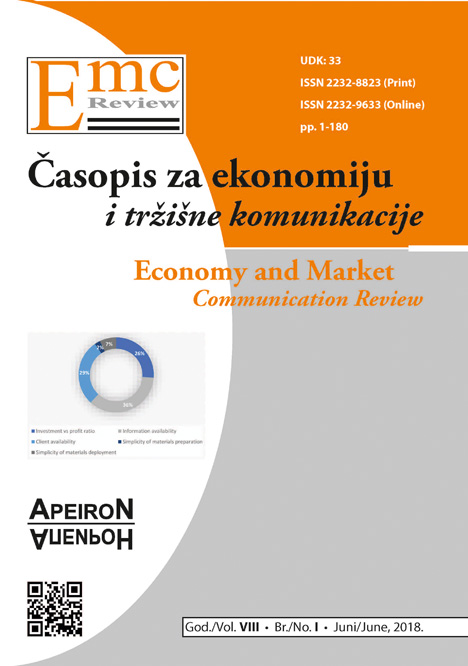TREATMENT OF INTERNATIONAL BUSINESS IN SERBIA // TRETMAN INTERNACIONALNOG BIZNISA U SRBIJI
DOI:
https://doi.org/10.7251/EMC1801150DJAbstract
The international business has been consistently represented in the world economy for more than 150 years and has been continuously increasing and strengthening all the time, making it today the most important economic and globalization factor that undoubtedly dominates the world economy. It is characterized primarily by the so-called. multinational corporations that operate through their affiliates in several countries with the main goal of maintaining and increasing their profits. They are now present practically in all countries of the world, and it is estimated that their business activities now contribute to generating the global GDP of about 75%. Such a progressive multinational business generally bases itself on highly competent management and the use of the latest and increasingly productive technologies as a materialized expression of the development of applied economic and social sciences. Within all this, regarding the world-established freedom of movement of capital and labor, national states are making increasing efforts to regulate the breakthrough and functioning of an international business in their territories in the interest of their progress.
In this context, in order to regulate the operation of the international business, it has been selected to study the treatment of international business in Serbia, as a small transition country, with the results thus obtained being representative for all the countries of the present day. Consequently, the focus of these studies is the attitude of the state of Serbia and its higher education towards the emerging international business. In this paper, with the help of an adequate questionnaire and respondents from higher education institutions, the attitude of the state and higher education towards the international business is considered, where adequate breakthrough of the positive and inert suppression of the negative activity of that business is ascertained. The positive treatment of this business is reflected in the state stimulation of its attraction in order to raise the level of GDP and employment, while the negative sides refer to the insufficient protection of national economic entities, the poor protection of the available natural resources, and the insufficient study of that business in higher education system of Serbia.
On this basis, the paper presents suggestions that the state of Serbia and its higher education should even more constructively treat international business in the function of its further economic prosperity. Of course, all these results are not representative for Serbia only, but practically for all other countries.
